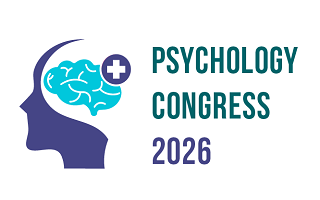Psychology & Behavioral Sciences
Psychology Congress 2026

Sofia University, Bulgaria
Title : Modeling the Effects of Values, Eco-Anxiety, and Eco-Identity on Pro-Environmental Behaviour
Abstract:
In the context of escalating environmental crises, it is essential to understand the psychological and value-based determinants of pro-environmental behaviour. While personal values have long been recognised as influential, the pathways linking personal values to sustainable behaviours, particularly through emotional processes and identity development, remain insufficiently explored. This study addresses this gap by examining how value orientations and eco-anxiety contribute to forming eco-identity and subsequent pro-environmental behaviours. Using Structural Equation Modeling (SEM), the study tests a model integrating key personal values—derived from Schwartz’s theory of basic human values, namely conservation, openness to change, self-enhancement, self-transcendence, and hedonism—two factors of eco-anxiety (general and behaviour-specific), eco-identity, and three forms of sustainable behaviour. Data were collected from a diverse sample of 551 participants residing in Bulgaria, aged between 13 and 90 years (M = 27.38, SD = 13.34). The sample included 223 males, 312 females, and 16 participants who did not specify their gender, providing a broad socio-demographic context for analysis. Self-transcendence positively predicts both general (β = 0.613) and behaviour-specific eco-anxiety (β = 0.295), with an additional positive path of self-enhancement (β = 0.172). Hedonism shows a negative link to behaviour-specific eco-anxiety (β = -0.155), indicating that prioritising pleasure may reduce personal environmental concern. General eco-anxiety negatively predicts eco-identity (β = -0.085), while behaviour-specific eco-anxiety positively predicts it (β = 0.332). In turn, eco-identity strongly predicts pro-environmental behaviours: socially active actions (β = 0.626), resource-saving practices (β = 0.397), and ecological habits (β = 0.780). Findings suggest that fostering self-transcendence values and strengthening eco-identity are key strategies for promoting sustainable behaviour. Educational and policy interventions should emphasise identity formation aligned with ecological responsibility to support lasting environmental engagement.
Biography:
Sonya Karabelova is the Dean of the Faculty of Philosophy at Sofia University "St. Kliment Ohridski", Sofia, Bulgaria. She is an established lecturer and researcher in the fields of health psychology and statistical methods in psychology
